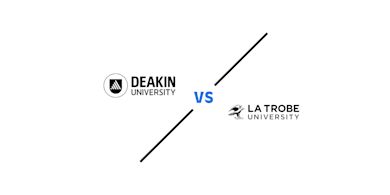- 10 min
- Published: 27 June 2024
- Updated: 26 June 2024
Know from experts the benefits of studying master’s in education in Canada
Most popular specialisations in master’s in education in Canada
Canada is a popular destination for studying master’s in education because of the variety of specialisations that the universities offer. Here’s a list of specialisations to opt from:
Student Community
Join the IDP student community
Connect with peers and student ambassadors to hear real experiences, tips, and advise about studying broad.

1. Master’s in Education – Environmental and Sustainability Education
2. Master’s in Education – Educational Leadership
If you are a performing and ambitious professional who seeks to exercise leadership in a wide array of formal and informal educational settings, then this course is the right choice for you! This course will prepare you for professions like Education Administration, Publishing, testing, assessment, and facilitators of educational change within schools and communities.
3. Master’s in Education – Counselling Psychology
5. Master’s in Education – Special Education
This program is designed to help students with exceptionalities like emotional and behavioural disorders, visual impairments, and developmental disabilities. In this course, you will specialise in Special education instructional coordinator, Special education clinical roles, Educational Diagnostician etc.
6. Master’s in Education – Early Childhood Education
This program is designed for educators and childcare professionals who wish to explore issues in early childhood research, theory, and practice. The course mainly focuses on theorising early childhood and early childhood education, research and research methodologies, issues in early childhood curriculum, instruction, assessment and evaluation, and cross-departmental inquiries in early childhood education.
7. Master’s in Education – Gerontology
This degree prepares graduates to positively influence gerontological practice, program administration, and the health and well-being of the ageing population through innovative policy and practice approaches in the field of Gerontology. The popular jobs after pursuing a Master’s in Education – Gerontology are Clinical Nurse Specialist, Nurse Practitioner, Regional Manager- Clinical services, Research Assistant, etc.
8. Master’s in Education – Sustainability, Creativity, and Innovation
This program offers courses that enable learners to become more empowered leaders in education for sustainability, contribute to individual, community and global well-being, integrate literacy and also build real-world connections. You can specialise in Innovation program specialist, climate change and sustainability specialist, and Research Assistant- Innovation.
9. Master’s in Education – Society, Culture and Politics in Education
This program addresses the history of education, sociology of education, politics of education, philosophy of education, and cultural aspects of education. Examples of educational practices include community education, out-of-door education, art education, educational practice as part of transnational development, and facilitation practice.
11. Media and Technology Studies Education
This program provides a forum for exploring and studying Information and Communication Technologies (ICT), new media, and the philosophy of technology. Curriculum, pedagogy, research, and development interests of faculty and students include affective computing, cyberculture and cyborg relations, digital ecology and diversity, distributed cognition, gaming, ICT integration in K–16 formal and informal learning environments (face-to-face, hybrid, and online distance education), intellectual property, open source, and cultural studies.
12. Educational Research
This program is aimed at working professionals and is designed to educate students as leaders of professional practice in the field of educational research. The course will help them gain a critical awareness of current issues in pedagogy and will spark fresh insights for new methods and approaches to teaching.
Popular universities offering master’s in education programs in Canada
Admission requirements for master’s in education in Canada
Admission requirements vary with the university or college you choose to study Master’s in education in Canada, but here are the common criteria you need to fulfil:
Approximately one to two years of relevant work experience or 4 years of bachelor’s degree preferably in education is required.
Minimum overall undergraduate average of 70% is required for a master’s degree.
Few Universities are looking for additional test scores such as the English proficiency test, the Graduate Record Examination (GRE) or the Graduate Management Test (GMAT).
Detailed curriculum Vitae is required explaining all your qualification and job duties.
Statement of Intent outlining the area of Interest and focus for the study.
Minimum three Letters of Reference from their employer and university requesting your academic abilities and achievements.
Transcript is required from all post-secondary institutions.
Deadline for master’s in education in Canada
The main academic session in Canada is in September, and a few universities have January intake as well. Applying for admission in Canada can be competitive as the number of applicants far exceeds the actual number of accepted admissions. It is always advisable that international students must apply 9-10 months prior to the intake start date.
Career opportunities and average pay scale for education field in Canada
Graduates can work as Teachers, Resource Educators, Researchers, Literacy Coaches, Project Managers in Education, Curriculum developers, Innovation program specialists, climate change and sustainability specialists, Research Assistants – Innovation and many more.
Job Title | Range | Average |
Elementary School Teacher | CAD 46,000 – CAD 95,000 | CAD 69,650 |
High School Teacher | CAD 49,000 – CAD 10,1,000 | CAD 78,423 |
Program Coordinator, Non-Profit Organisation | CAD 35,000- CAD 59,000 | CAD 44,770 |
Learning and Development Specialist | CAD 51,000 – CAD 96,000 | CAD 72,047 |
Training & Development Manager | CAD 63,00 – CAD 1,10,000 | CAD 83,096 |
Education Program Coordinator | CAD 38000 – CAD 90,000 | CAD 57,489 |
Education Manager | CAD 62,000 – CAD 91,000 | CAD 75,961 |
Middle School Teacher | CAD 35,000 – CAD 1,12,000 (Estimated*) | CAD 63,013 |
Education Program Manager | CAD 55,000 – CAD 90,000 (Estimated*) | CAD 70,177 |
Canadian universities offer multiple specialisations for Master’s in Education. You can choose what aligns with your interest. Also, if you want to know more about studying in Canada, you can get in touch with our international education experts at IDP. They will help you with university selection and the end-to-end admission process.
Updated on March 15, 2023
一個帳號滿足你所有的留學需求
建立您的個人檔案,解鎖各種功能,包括個性化建議、快速申請等等。











